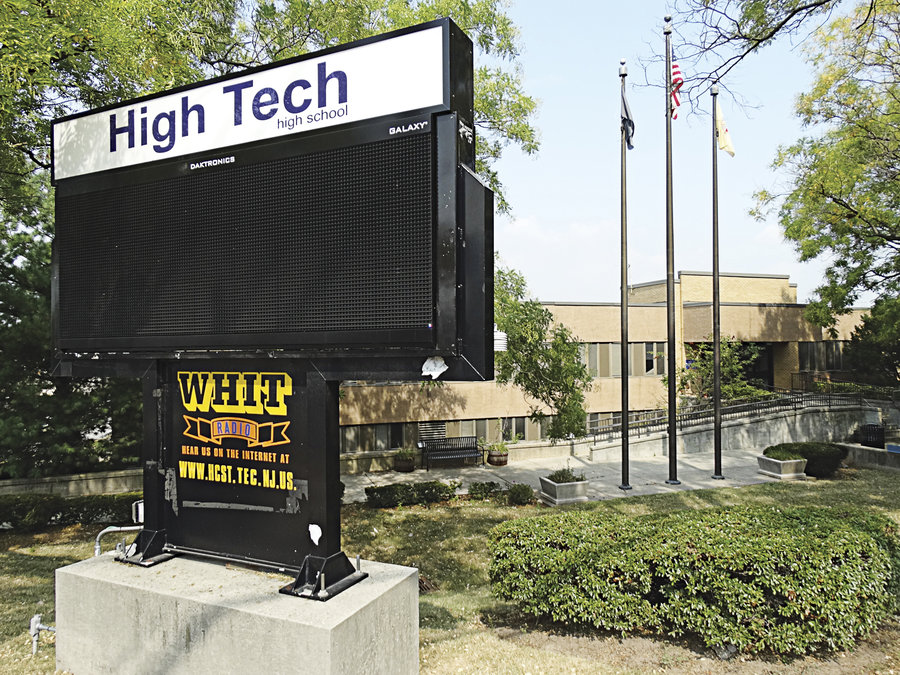Anticipating that the new Hudson County Schools of Technology (HCST) complex will break ground in Secaucus this spring, the Board of Freeholders have set criteria that would require contractors to hire local residents as apprentices and cleared the way for local companies to be used as subcontractors on the project.
The $160 million project will take an estimated three years to build. The current school building in North Bergen will be sold, except for the parking lot area, which will be used to accommodate the school fleet.
Freeholder Bill O’Dea said he was concerned that contracts associated with the project be given to local contractors, especially minority-owned companies.
Unfortunately, companies need to be certified with the state before they can be hired as subcontractors on school projects. Hudson County officials will have to scramble to meet certification deadlines if they want local contractors hired.
While half the cost of the construction will be paid for by the state, O’Dea said the other half will come from local taxpayers, and the county needs to be assured that local businesses and local tradespeople are employed.
The county now has two high tech high schools, one in North Bergen and another in Jersey City. Originally, the county proposed combining the two campuses on county-owned property near Laurel Hill Park in Secaucus. Instead, the new school will replace only the 100 year-old building on 85th Street in North Bergen, which has operated as the county high school since 1988.
The county would close the North Bergen facility, which officials say is too poorly laid out to serve as a school, and sell off most the property to help cover some of the costs associated with the construction of the new school. The Hudson County Improvement Authority (HCIA) will bond for the county’s portion of the project costs.
“We don’t even know what this office is doing.” – Bill O’Dea
____________
The freeholders passed a resolution at their Feb. 11 meeting that would require companies to take on local apprentices for the project. This would clear the way for local workers, especially minorities, to eventually seek work in the building trades. The local unions established a program for local residents at other projects throughout Jersey City and Hudson County.
“This is one way local people can gain experience and eventually get jobs,” O’Dea said.
An expensive transition
Last year, Norman Guerra, executive director of the HCIA, proposed expanding a little used economic development function of the authority. But the freeholders want to see changes in the office overseeing economic development before they agree to any expansion.
HCIA is more or less the environmental branch of county government, in charge of recycling and a number of other related programs. But it has also become a kind of bank for municipalities, using its resources to offer loans. Its economic development portion has been somewhat limited, unlike places like Jersey City, which is credited with having a significant influence on the redevelopment of large tracts of former industrial property.
But over the last year, the process of converting this economic development office has bogged down as officials seek to fill a new 12-member board to oversee it.
This office has largely been giving local businesses small loans from county grants. O’Dea and others would like to see the revised agency bringing in private money to offer for larger redevelopment projects, similar to what currently is done in Jersey City and elsewhere.
But at the Feb. 11 meeting, freeholders were asked to continue to pay as much as $330,000 annually to maintain the old economic office.
“From what I can tell, the office is doing nothing, and yet we’re being asked to pay for it,” O’Dea said, balking at passing a resolution that would give the office an additional $110,000 to keep it operational for the next four months.
“We don’t even know what this office is doing,” O’Dea said. “We don’t know what loans are outstanding. We need to get a report on what we’re paying for. I suggest we fund this office month by month until we find out.”
The board overseeing the revamping of the office still needs two new members before it can begin to expand the program and hire new staff.
In the past, the HCIA has used its revenue to help municipal and other governments with loans, often allowing governments to use municipal buildings as kind of collateral to help bridge short time revenue issues. The new role would establish joint projects with private developers and possibly generate significant amounts of money for large redevelopment projects. This could include development of affordable housing, veterans housing and other projects.
“Until now, this office has brought no private money into the mix,” O’Dea said. “That needs to change.”
Al Sullivan may be reached at asullivan@hudsonreporter.com.
